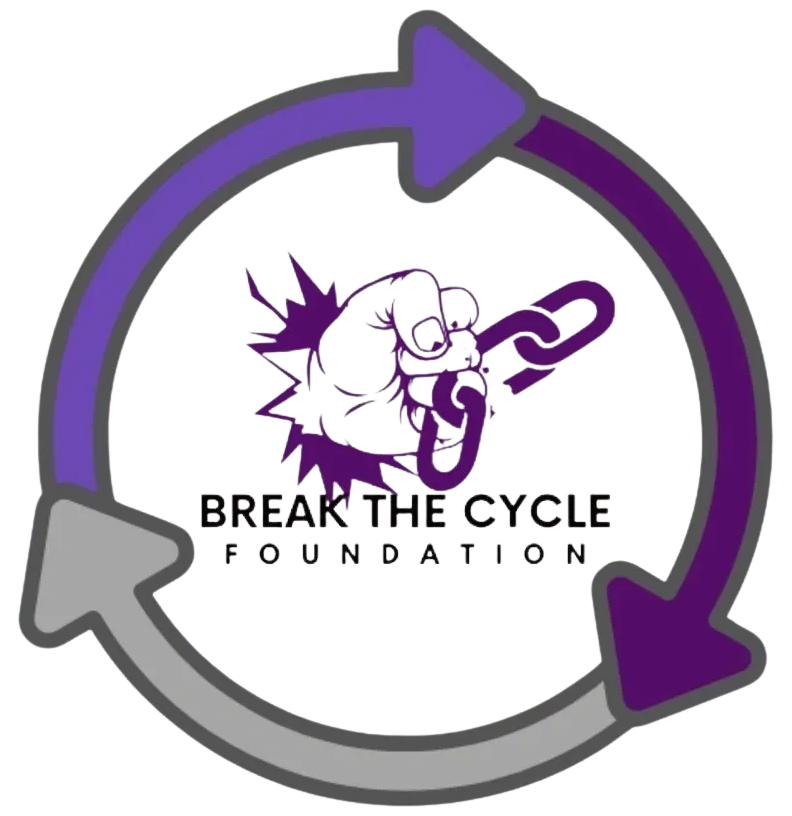Setting Realistic Recovery Goals
The foundation of successful addiction treatment lies in setting achievable recovery goals. At Break The Cycle Foundation, we believe that meticulously planned goals pave the way for sustainable sobriety and overall well-being.
Importance of Goal Setting in Recovery
Setting realistic recovery goals with your care team is crucial in creating a structured framework for recovery. This practice:
- Encourages Progress: Defined goals provide clear milestones, helping clients see tangible progress.
- Fosters Long-Term Sobriety: Outlining specific objectives aids in establishing lasting habits that support sober living (Tranquility Woods).
According to the Substance Abuse and Mental Health Services Administration (SAMHSA), realistic goals form the backbone of effective recovery strategies.
Benefits of Goal Setting in Addiction Treatment
The benefits of setting clear and achievable goals within addiction treatment are multifaceted. By working closely with a care team, individuals can experience:
- Enhanced Motivation: Well-defined goals can be motivating, providing a sense of purpose and forward movement. Goals should be big enough to excite, yet attainable enough to build confidence.
- Improved Focus: Goals help in prioritizing actions, ensuring that clients remain focused on their recovery journey.
To maximize the chances of goal attainment, we recommend the SMART criteria:
- Specific
- Measurable
- Achievable
- Relevant
- Time-bound
Sample Table: SMART Goal Criteria
| Goal Aspect | Description |
|---|---|
| Specific | Clearly defines what needs to be achieved |
| Measurable | Allows tracking of progress |
| Achievable | Is realistic within the given resources |
| Relevant | Aligns with broader recovery objectives |
| Time-bound | Has a clear deadline |
Integrating these principles helps in creating meaningful, actionable goals. Regular goal review sessions with the care team also play a significant role (Kemah Palms).
By setting realistic recovery goals collaboratively with your care team, individuals ensure a structured and supportive approach to their recovery journey. For more on the specific strategies we adopt, visit our resources on relapse prevention planning and individual counseling for addiction.
Goal Setting Strategies
Establishing effective goal setting strategies can be key to the success of recovery. At Break The Cycle Foundation, we utilize various approaches to ensure that our clients are equipped with the tools they need for a full and successful recovery.
Utilizing SMART Criteria
A foundational strategy for goal setting in recovery is the SMART criteria. Goals should be Specific, Measurable, Achievable, Relevant, and Time-bound. This method ensures that goals are clear and reachable within a reasonable timeframe. At Break The Cycle Foundation, we encourage our clients to break down their recovery goals using this framework to foster realistic and attainable targets. For more information on how SMART criteria can be effectively implemented in recovery, refer to Tranquility Woods.
Incorporating Cognitive-Behavioral Therapy (CBT)
Cognitive-Behavioral Therapy (CBT) is another integral component in setting realistic recovery goals. By identifying and challenging negative thoughts and behaviors, clients can set more effective goals related to their recovery journey. CBT often includes progress trackers, which help clients monitor their advancement towards recovery milestones. This structured approach in therapy aids in maintaining focus and motivation. Learn more about how CBT can benefit recovery in our resource on individual counseling for addiction.
Leveraging Sponsor Relationships
Sponsor relationships in 12-Step programs, such as Alcoholics Anonymous, are pivotal in goal setting. Sponsors provide accountability and mentorship by sharing their personal recovery experiences and offering guidance through difficult times. These relationships foster an environment where clients feel supported and are more likely to stay committed to their recovery goals. Insight into sponsor relationships and other therapeutic supports can be found in our detailed article on group therapy for substance use.
By utilizing these strategies, individuals in recovery can set practical and achievable goals that support their long-term health and wellbeing. For more details on various aspects of addiction treatment at Break The Cycle Foundation, please visit our articles on what is substance use disorder and how is it treated and understanding the intake and assessment process.
Early Recovery Goals
Completing Safe Detox
Completing detoxification safely under medical supervision is often the first step towards recovery from addiction. It involves the physical cleansing of the body from substances and managing withdrawal symptoms. We prioritize offering a compassionate and clinically sound environment during this phase to ensure safety and comfort. For more information on the detox process, check out our article on what to expect during your first outpatient therapy session.
| Metric | Value |
|---|---|
| Average duration of detox (days) | 5 – 7 |
| Medical supervision availability | 24/7 |
| Success rate (%) | 85 |
Developing Coping Mechanisms
Developing effective coping mechanisms is an essential part of early recovery. This process involves identifying triggers that lead to substance use and creating strategies to manage them. These strategies are formulated with the guidance of healthcare professionals. Cognitive-Behavioral Therapy (CBT) techniques, mindfulness practices, and stress management skills are integral parts of this goal. More insights can be found in our piece on how structured counseling helps break the cycle of addiction.
| Coping Mechanism | Description |
|---|---|
| Identifying Triggers | Understanding situations and emotions that prompt substance use |
| Stress Management | Techniques like meditation and exercise |
| CBT Techniques | Reframing negative thoughts and behaviors |
Rebuilding Family Connections
Rebuilding family connections is another critical goal in the recovery journey. Addiction often strains family relationships, and restoring these bonds can provide a strong support system for the individual. Family therapy sessions facilitate open communication, understanding, and healing within the family unit. To learn more about how family therapy fits into addiction treatment, visit our page on group therapy for substance use: how it supports recovery.
| Aspect | Benefit |
|---|---|
| Family Therapy Sessions | Enhances communication and understanding |
| Support Groups for Families | Provides emotional support and shared experiences |
| Joint Counseling | Addresses family dynamics and supports recovery |
Setting realistic recovery goals with your care team is crucial for successful early recovery. These goals help individuals navigate the challenging path towards sobriety while ensuring comprehensive care and support. For deeper insights into specific therapies and their benefits, consider exploring individual counseling for addiction: what to expect and relapse prevention planning: core elements to include.
Continuing Care Goals
Long-Term Recovery Success
At Break The Cycle Foundation, we understand the importance of setting realistic recovery goals with your care team to achieve long-term recovery success. Individuals in recovery who set goals for themselves report higher levels of motivation, success, and productivity. In our experience, attainable goals are crucial in addiction recovery, with the understanding that achieving long-lasting sobriety often involves reaching several smaller milestones along the journey.
Milestones in continuing care, like achieving one year of sobriety, can provide motivation to keep moving forward towards long-term goals. Rebuilding strained family connections through family therapy can also be a crucial goal in the recovery process. For more on what to expect during the recovery journey, visit our page on individual counseling for addiction.
Importance of Regular Check-Ins
Regular check-ins with therapists, sponsors, or peer groups are essential in continuing care. These check-ins help individuals remain aligned with their recovery goals, providing the necessary accountability for sustaining sobriety (Kemah Palms). Consistency, breaking down goals, seeking support from healthcare teams and loved ones, being open to adjustments, and celebrating achievements are effective strategies for achieving rehabilitation goals. For further details on effective recovery strategies, visit our guide on relapse prevention planning.
Addressing Co-Occurring Disorders
For those dealing with dual diagnosis, addressing co-occurring disorders is a critical component of continuing care. Individuals with mental health conditions like anxiety or depression benefit from integrated treatment that manages both addiction and mental health (Kemah Palms). Research on goal monitoring in psychotherapy shows that regular goal reviews can enhance retention and progress, demonstrating significant effectiveness (NCBI). For more information on comprehensive addiction treatment, explore our article on understanding the intake and assessment process.
At Break The Cycle Foundation, we’re committed to supporting you every step of the way in your journey to recovery. Setting realistic recovery goals with your care team is just one of the many ways we help you achieve long-term success.
Collaborative Goal-Setting
Clinician-Client Collaboration
Collaborative goal setting is central to setting realistic recovery goals with your care team. This approach ensures that both the client and clinician work together to identify and formulate therapeutic goals. By doing so, the process enhances accountability and fosters client self-determination. At Break The Cycle Foundation, we prioritize a collaborative framework because it allows us to create a personalized recovery plan tailored to each individual’s unique needs.
The joint effort involves continuous dialogue and mutual agreement on treatment milestones, ensuring the goals are both realistic and achievable. This collective approach not only empowers the client but also engenders trust and transparency, crucial components in any therapeutic relationship. For more on what to expect in a therapeutic setting, see individual counseling for addiction: what to expect.
Principles of Goal Setting and Monitoring
The principles of goal setting and monitoring are derived from extensive interdisciplinary research. According to a study by the NCBI, 10 principles and 32 practices related to goal setting and monitoring in addiction therapy were identified. These principles emphasize transparency, standardization, and collaborative mapping of treatment progress.
10 Principles of Goal Setting and Monitoring:
- Client Involvement: Actively include clients in the goal-setting process.
- Transparency: Ensure both client and clinician understand the goals and the steps to achieve them.
- Relevance: Goals must be relevant to the client’s life and circumstances.
- Specificity: Goals should be clear and specific, not vague.
- Measurability: Goals need to be measurable to track progress effectively.
- Adjustability: Goals should be flexible to adapt to changing circumstances.
- Accountability: Both client and clinician should be accountable for progress.
- Regular Monitoring: Continuously monitor and review goals.
- Feedback Mechanisms: Implement methods for providing constructive feedback.
- Documentation: Keep detailed records of goals and progress.
For those interested in detailed practices and systematic approaches for goal setting, these principles ensure a structured and effective method. To further explore the core elements involved, check our relapse prevention planning: core elements to include.
Practical Implementation
| Principle | Practice Example |
|---|---|
| Client Involvement | Regular client meetings to discuss progress |
| Transparency | Open and clear communication throughout the treatment |
| Relevance | Personalizing goals considering client’s background |
| Specificity | Setting detailed steps for achieving each goal |
| Measurability | Using metrics and benchmarks for progress assessment |
| Adjustability | Revisiting goals regularly to make necessary adjustments |
| Accountability | Jointly reviewing progress logs and accountability charts |
| Regular Monitoring | Scheduled review sessions |
| Feedback Mechanisms | Constructive feedback sessions post-progress reviews |
| Documentation | Maintaining comprehensive records of set goals and achievements |
Adhering to these principles ensures that both clients and clinicians at Break The Cycle Foundation can navigate the path to recovery effectively. For detailed insight into how our structured counseling processes help break the cycle of addiction, visit how structured counseling helps break the cycle of addiction.
Integrating Core Values in Recovery
Integrating core values into the recovery process is essential for achieving long-lasting success in addiction treatment. Core values act as a guiding light, helping individuals make decisions and stay motivated on their path to healing.
Role of Core Values
Values play a crucial role in shaping decisions, behaviors, and the path to recovery. Understanding and embracing these values offer strength and direction. Core values such as integrity, honesty, compassion, empathy, and resilience act as guiding lights in times of darkness (Lumina Recovery). They form the foundation for personal growth, strengthen relationships, motivate change, and cultivate a sense of purpose in recovery.
SMART Goals Aligned with Values
Setting goals that reflect one’s core values is essential for achieving a healthy, substance-free life. Using the SMART criteria (Specific, Measurable, Achievable, Relevant, Time-bound) ensures that goals are clear and attainable.
| Core Value | SMART Goal Example |
|---|---|
| Integrity | Specific: Attend 4 therapy sessions in a month. Measurable: Track attendance. Achievable: Sessions are once a week. Relevant: Therapy aligns with personal values of integrity. Time-bound: Within one month. |
| Compassion | Specific: Volunteer 2 hours per week at a local shelter. Measurable: Log weekly volunteer hours. Achievable: 2 hours is manageable. Relevant: Volunteering aligns with compassion. Time-bound: Weekly commitment. |
| Resilience | Specific: Practice mindfulness meditation daily for 10 minutes. Measurable: Use a meditation app to track progress. Achievable: 10 minutes is a reasonable duration. Relevant: Meditation supports resilience. Time-bound: Daily practice for three months. |
Incorporating personal values into goal-setting helps in maintaining self-respect, commitment to growth, support from connections, motivation, and sustained purpose in daily activities (Lumina Recovery).
Seeking Support in Value Identification
Sometimes, identifying core values can be challenging. Feedback from family members, friends, or mentors can be invaluable in this process. They can offer insights into the values they see an individual embodying, which may have not been recognized by the person themselves (Lumina Recovery). This collaborative approach can ensure that recovery goals are truly aligned with the individual’s values.
Seeking support is crucial for success. Consider engaging in group therapy for substance use, individual counseling, and regular check-ins with your care team.
By focusing on core values, setting realistic goals, and seeking support, we can pave the way for a successful recovery journey. Discover more about our comprehensive services at Break The Cycle Foundation.







